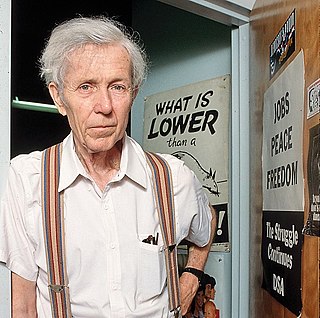A Quote by Annie E. Clark
I think one thing people forget is that every technological advance we fetishize had its place in time.
Related Quotes
An mp3 is a compressed form of data. It's not the full spectrum. It's never going to sound as good as a record. I think one thing people forget is that every technological advance we fetishize had its place in time. CDs are usually an hour long because that's the amount a CD could hold - not because that's the optimal amount of time for any given musical expression. Side one and side two? That's a product of vinyl. But that's not necessarily dramatic form - you could argue that that was three acts.
There's a generation of people that do fetishize books and do fetishize catalogues and do look at them as something important. The same thing with magazine culture: because magazines don't make the amount of money that they used to, it's become important again to another generation of people to actually read them. And it's very, very pinpointed to the select people that actually fetishize and go in and look at them.
Another thing is, people lose perspective. It is a cultural trait in America to think in terms of very short time periods. My advice is: learn history. Take responsibility for history. Recognise that sometimes things take a long time to change. If you look at your history in this country, you find that for most rights, people had to struggle. People in this era forget that and quite often think they are entitled, and are weary of struggling over any period of time
America's abundance was created not by public sacrifices to the common good, but by the productive genius of free men who pursued their own personal interests and the making of their own private fortunes. They did not starve the people to pay for America's industrialization. They gave the people better jobs, higher wages, and cheaper goods with every new machine they invented, with every scientific discovery or technological advance- and thus the whole country was moving forward and profiting, not suffering, every step of the way.
If war can indeed be turned into a relic, then the virtue of greed will recede further. From a given society's standpoint, one big upside of wanton material acquisition has traditionally been the way it drives technological progress-which, after all, helps keep societies strong. In the nineteenth century, Russia ans Germany had little choice about modernizing; in those days stasis invited conquest. But if societies no longer face conquest, breakneck technological advance is an offer they can refuse, and frugality a luxury people can afford.
I think part of the bad thing is that skill is emphasized so much that a lot of people, by the time they get to Juilliard, well I think they kind of forget why they got into music in the first place and if they're performers - this is a simplification, but a lot of them are trying to win a competition and play more accurately, or better, or more beautifully, whatever can be measured, than somebody else.
I wonder, What is it to be human? Especially now that we are so urban. How do we remember our connection with place? What is the umbilical cord that roots us to that primal, instinctive, erotic place? Every time I walk to the edge of this continent and feel the sand beneath my feet, feel the seafoam move up my body, I think, "Ah, yes, evolution." It's there, we just forget.
































